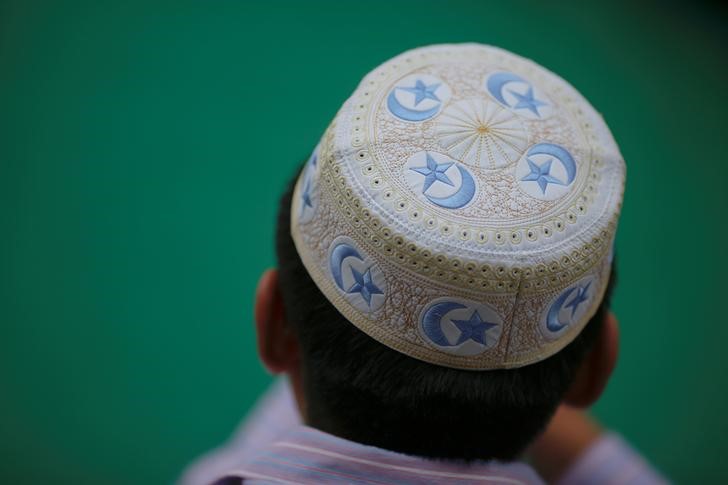China's Muslims under threat of religious persecution

China's president Xi Jinping, who has been accused of implementing draconian laws against religion since taking office in 2012, today spoke directly to Chinese Muslims – signifying a possible crackdown on a group that has so far avoided his harsh measures.
While visiting a mosque in the northwestern autonomous region of Ningxia, home to more than two million Muslims, Xi urged Chinese Muslims to practise their religion as part of Chinese society and "carry forward the patriotic tradition".
According to state newspaper China Daily, Xi said: "Religions in our country, the endemic ones and those from abroad, have become deeply embedded in the Chinese civilisation, whose history covers more than 5,000 years.
"They will continue to flourish while taking root here."
However, he also called on Muslims to "resolutely oppose illegal religious infiltration activities" and promote religious and social harmony.
It's all language he's used before; the ruling Chinese Communist Party (CPC) is committed to maintaining absolute power, and religion is perceived as a threat. In 2014, it announced plans to nationalise Christian theology, and only allows state-recognised religious institutions to operate. Encouraging religious groups to engage with "patriotic tradition" can be seen as a means by which to remind Chinese citizens "that their allegiance is to the country, and the Party, first."
Concerns about "religious infiltration" aren't new either. In May 2014, a report from China's University of International Relations and the Social Science Academic Press said that religion posed a serious threat to Chinese identity. Religious infiltration was listed as one of four challenges to China's national security.
But what is new is that the Hui Muslim community is the target of Xi's warnings.
Wai Ling Yeong, head of Chinese Studies at Curtin University of Technology in Perth, warned in May that China may be moving to restrict religious freedom among Hui Muslims. This is notable, she said, because "this fourth largest national minority group has been the poster child of China's ethnic policy".
"It epitomises the benefits of ethnic autonomy as an arrangement that promotes social stability. It highlights the success of a policy that allows ethnic minorities the freedom to maintain their language, customs, and religion. Most importantly, it helps negate the negative publicity that the Chinese government is receiving due to its draconian policies in Tibet and Xinjiang."
A report by the New York Times in February revealed that Hui Muslims have been able to practise their religion freely with minimal intervention by the government. Traditionally, they have enjoyed far greater freedoms than the Uyghur Muslims, the majority of whom live in Xinjiang in China's far-western corner.
In January last year, severe restrictions were imposed on Uyghur Muslims. Thousands were detained in security sweeps, some with deadly force, and jail sentences were given out for wearing religious attire. Men's beards and women's face veils were denounced as "extremist", and some local authorities threatened action against Muslim business owners if they chose not to sell alcohol and cigarettes due to their religious beliefs.
Some Uyghur Muslims were imprisoned for taking part in religious gatherings or activities, and were forbidden from fasting during the holy month of Ramadan.
Until now, however, Hui Muslims have been protected from such restrictions.
Another scholar who has warned the tide might be turning against the Hui community is James Leibold, an associate professor in politics and Asian studies at La Trobe university in Melbourne.
Last month, he predicted a "troubling extension of often irrational fears over the "Islamization" (伊斯兰化) of Chinese society."
Traditionally, Leibold said, China has divided its Muslim population "into two camps: the 'good Muslims,' like the Hui, who speak the Chinese language, abide by core elements of its culture, and thus can be trusted; and the 'bad Muslims,' like the Uyghurs, who continue to resist the inevitable process of assimilation". However, "recently the mood has darkened in the Hui areas," he warned.
On Twitter today, Leibold said Xi's three-day tour of Ningxia was a "clear sign Party leaders are concerned about religious extremism among the Hui".
It remains to be seen if these warnings will play out in reality, but if China's Hui Muslims are to face a similar fate to their Uyghur counterparts, the freedoms they have so far enjoyed are likely to be swiftly curtailed.











